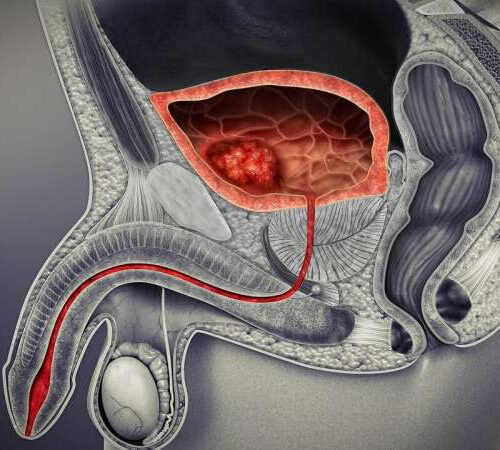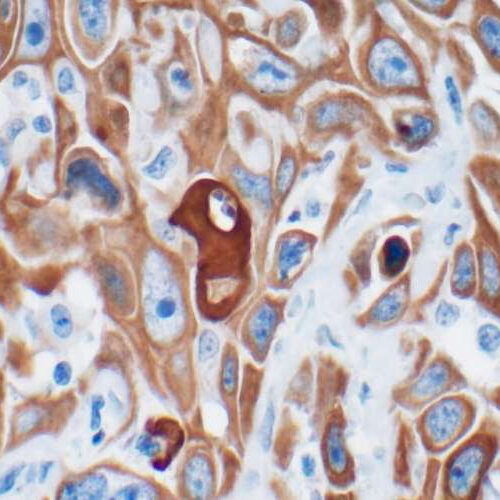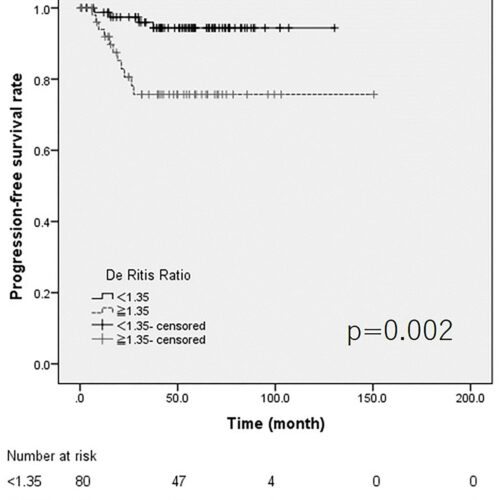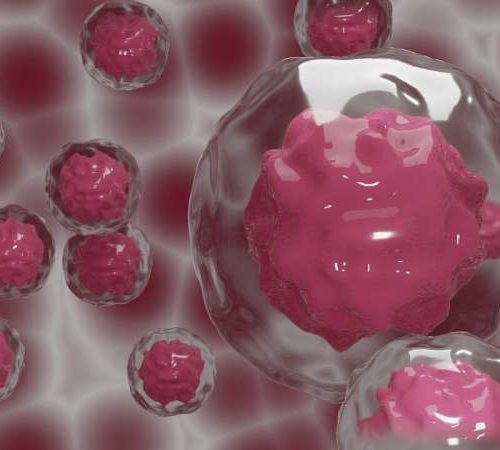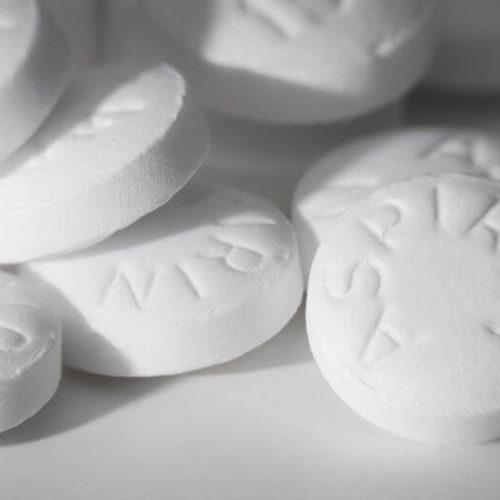by UNC Lineberger Comprehensive Cancer Center http://www.scientificanimations.com/, CC BY-SA 4.0 A new study in mice found that adding the experimental drug entinostat to an immunotherapy-like treatment substantially boosted cancer remission. This approach shows such promise that it’s already being tested in an ongoing clinical trial in people with advanced bladder cancer. This finding, led by scientists...
Tag: <span>Bladder Cancer</span>
New non-invasive test can detect bladder cancer
by Stony Brook University Microscopic image showing brown, antibody-based staining of keratin 17 (K17) in bladder cancer. Credit: Shroyer Lab, Stony Brook University A novel urine screening test that uses a protein, keratin 17 (K17), as a cancer biomarker reveals the test detects the presence of new or recurrent cases of bladder cancer. The methodology behind...
Oncotarget: Progression in high-risk non-muscle invasive bladder cancer
IMPACT JOURNALS LLC IMAGE: THE KAPLAN MEIER CURVE FOR PROGRESSION. CREDIT: CORRESPONDENCE TO – TAKASHI KAWAHARA – TAKASHI_TK2001@YAHOO.CO.JP Oncotarget published “A higher De Ritis ratio (AST/ALT) is a risk factor for progression in high-risk non-muscle invasive bladder cancer” which reported that a recent study revealed that a high De Ritis ratio was a risk factor in some...
Genes and immune cells predict immunotherapy success in bladder cancer
by The Mount Sinai Hospital Credit: CC0 Public Domain Sets of genes associated with resistance to immunotherapy in patients with metastatic urothelial cancer of the bladder have been identified and validated by researchers at Mount Sinai. In a study published in Clinical Cancer Research, the team uncovered gene signatures representing adaptive immunity and pro-tumorigenic inflammation that were responsible for sensitivity or...
Taking aspirin 3 times weekly boosts chances of surviving breast, bladder cancers
January 16, 2021 by Study FindsSHARES32 BETHESDA, Md. — Aspirin is commonly linked to better heart health, especially when a patient is having a heart attack. Now, one study finds that taking a few tablets each week may also be the key to surviving certain cancers. Researchers with the National Cancer Institute say taking aspirin at least three...
Modified tuberculosis vaccine as a therapy for bladder cancer
by Markus Berninger, Max Planck Society The human immune system can recognize and eliminate not only germs but also cancer cells. This is why treatments with weakened germs can help the immune system in its fight against cancer. Researchers at the Max Planck Institute for Infection Biology in Berlin have genetically modified the tuberculosis vaccine...
Urine test detects bladder cancer up to 10 years before clinical signs
By Rich Haridy A compelling new study from the World Health Organization’s International Agency for Research on Cancer (IARC) is suggesting a simple biomarker in urine may be an effective predictive test for bladder cancer, signaling the disease’s presence up to 10 years before clinical signs appear. Bladder cancer is a challenging type of cancer...
Home urine test for prostate cancer could revolutionize diagnosis
UNIVERSITY OF EAST ANGLIA A simple urine test under development for prostate cancer detection can now use urine samples collected at home – according to new research from University of East Anglia and the Norfolk and Norwich University Hospital. Scientists pioneered the test which diagnoses aggressive prostate cancer and predicts whether patients will require treatment...
Anthrax may be an unlikely ally against bladder cancer
By Michael Irving If movies have taught us anything, it’s that sometimes to fight one villain, you have to team up with another. Medical science occasionally follows the same logic and in the latest example, researchers have turned to anthrax as an unlikely ally in the fight against bladder cancer, with promising results in animal...
Study sheds new light on the growth of bladder cancer
by Curtin University New Curtin University-led research has discovered that using drugs to target a pathway in the body that causes cancerous cells to spread aggressively may help to reduce the severity of bladder cancer. The research, published in Nature Communications, aimed to understand the function of two naturally occurring proteins called hepatocyte growth factor...

